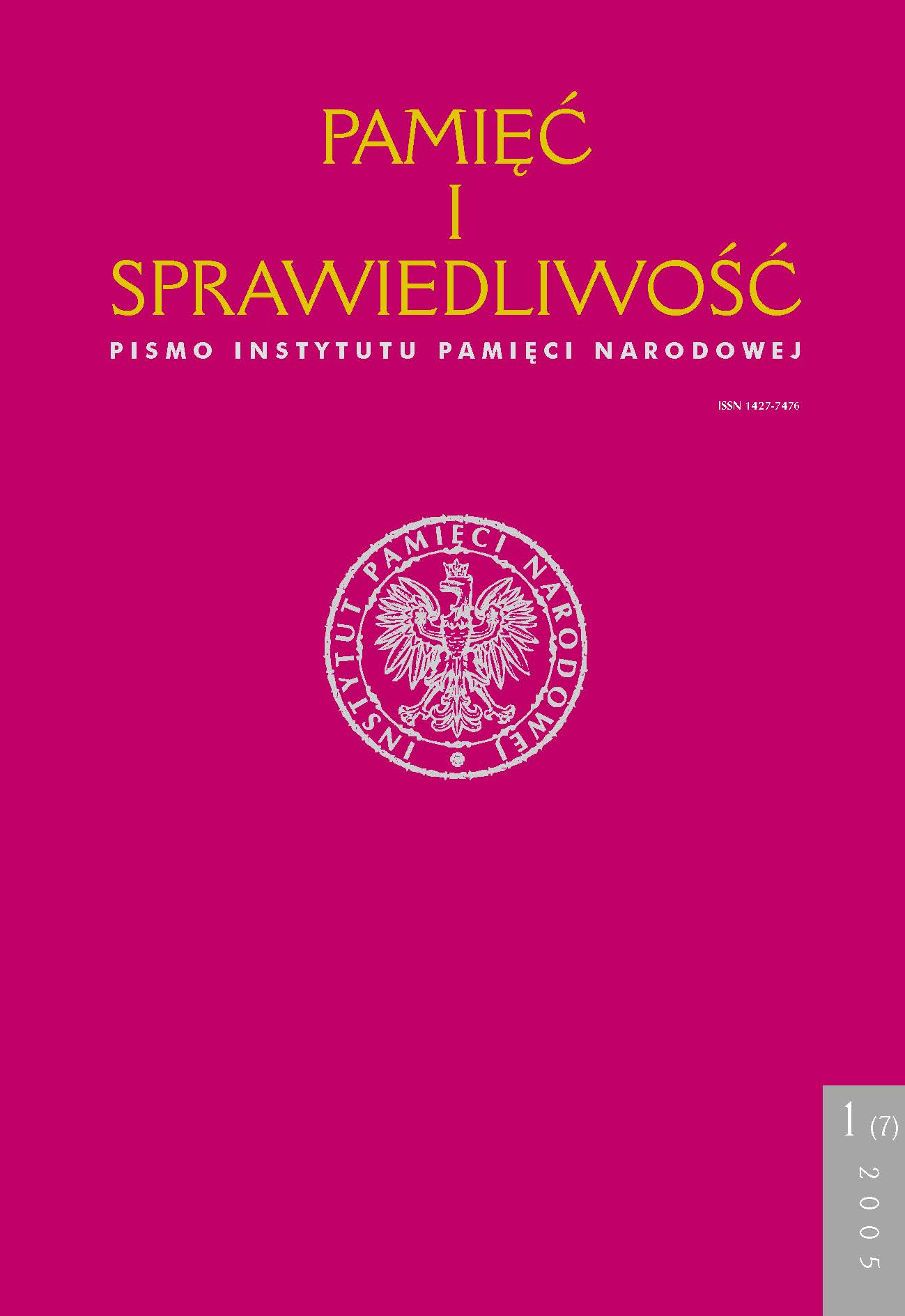Divide et impera. An essay on the complexity of the Polish People’s Republic’s religious policy concerning minority Churches and its consequences
Remembrance and Justice, Vol. 7 No. 1 (2005), pages: 53-70
Publication date: 2005-06-30
Abstract
Up till 1956 almost all the Churches and religious communities in Poland were affected by the religious policy of the authorities which was aimed at making society atheist while eliminating any subjects standing in the way of this process. Eliminating
activities which affected faiths other than Roman Catholic mainly concerned Jehovah’s witnesses, the Polish Catholic Church, Evangelist-Baptist Churches and Unions, the Methodist Church and the Union of the Seventh Day Adventists Communities.
“Custom made” solutions were advanced on the basis of the knowledge of the religious policy makers of the specifics, doctrines and dogmas of the various persuasions. The practice of coups within the various Church authorities and the repression of clergymen and leading authorities were typical. At the same time until 1956 the authorities did not try to use other Christian communities against the Roman Catholic Church. The change
came in the mid fifties, when the forming of Polish Catholic parishes was supported. The Polish Catholic Church in the mind of the authorities was supposed to become a “Catholic
alternative”. As from 1963 this stream was to be supported by Independent Roman Catholic Parishes, i.e. parishes which renounced their submission to the bishops.
Most of the Churches and minority communities were used as a propaganda factor during the rivalry between the Catholic Church and State concerning the millennium celebrations in 1966. In April 1981 the “Reformed Evangelical Church” broke away from the group of pro-government Churches. The Church’s synod backed the Independent Self-governing Trade Union “Solidarity” and blamed the authorities for the country’s crisis. The Reformed Evangelists also changed their attitude towards the Roman Catholic Church, seeing it to be the forefront of the “clash with communism and atheism”. After 1989 the clergymen of the Reformed Evangelical Church came to criticize the Roman
Catholic Church for the unfair judgement of their leaders, concerning minority religions in general which ignored the complex political context.
The Polish People’s Republic’s religious policy did not make society lay or atheist. Its success in reference to Churches and minority religions is, however, that the period of manipulating them and influencing them in other ways, makes ecumenism amongst Polish Christians difficult.
 Język Polski
Język Polski
 English
English
 Deutsch
Deutsch
 Français (France)
Français (France)
 Italiano
Italiano
 Русский
Русский


 PDF (Język Polski)
PDF (Język Polski)
